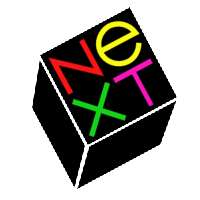Will Apple miss the virtualization boom?

Virtualization is the hot tech topic right now. However, some enterprise Mac watchers are worried that Apple's policy of keeping Mac OS X tied to Apple hardware is keeping OS X not just in left field but totally out of the game.
Of course, this discussion isn't new to Apple. Depending on the decade, a related set of questions have circled around core business models: Is Apple a hardware company or a software company; should Apple license the Mac OS; can the Mac succeed in the business market?
With the recent VMworld 2007 conference and expo now fading into memory, author John Rizzo today posted a commentary on his MacWindows site.

It's not a technical issue. There are hacks all over the Internet to describe how to install Mac OS X in a Parallels Desktop or VMware Fusion VM. (See this how-to, for instance). You can even Google to find pre-patched OS X virtual machines available as bit torrents. But illicit hacks are not the material of enterprise toolboxes.
One startup company, Moka5, has already virtualized Mac OS X to run on non-Apple hardware. (See MacWindows' coverage Beta app virtualizes Mac OS X in Windows; first VM to support DirectX 9). But Moka5 does not mention OS X at its web site. They don't want to get on Apple's bad side. Parallels and VMware have said they could easily enable Desktop and Fusion to run Mac OS X in a virtual machine. Representatives from both companies said they won't virtualize Mac OS X until Apple gives them the go ahead. Which won't be anytime soon.
Rizzo says that Apple's protection of its Mac and Xserve hardware platforms is limiting its chances in the enterprise. Apple insists on customers taking the bundle, when the data center wants to virtualize everything on its own, existing hardware.
Here are a few thoughts on the issue:
[poll id=65]
Apple is a __fill in the blank__ company. Over the years, analysts and pundits have wanted Apple to choose its course between hardware and software. The company makes great software and great hardware. But it should pick one model and run with that.
In the past, I've championed the hardware side. However, nowadays I see Apple as a solution company.
Apple provides customers with an integrated package of hardware, OS-ware and host-based services, application software, and now more recently Web services. Its value is that it isn't just a hardware company or a software company, especially in a technology market that is so quickly commoditized.
Apple targets various markets with its solutions, including servers and storage systems. While it has some enterprise customers, its focus hasn't been on the data center. We will see what the forthcoming release of Leopard Server and its support for Sun's ZFS (Zetta File System) will do for the Mac in the that market.
Apple's mixed licensing history. The camp that waves the flag for Apple as an OS company have said that Apple is crazy not to license the OS for virtual machines. Yet that pitch ignores the fact that Apple has a growing business in hardware. Apple is selling more Macs now per quarter than it ever has in its history.
The question of unbundling the Mac OS its Apple-branded hardware has been with the company since the mid-1980s. Bill Gates himself sent a memo in 1985 to John Sculley suggesting that the two companies work together on spreading the GUI message.
Here's a bit from the memo:
Apple's stated position in personal computers is innovative technology leader. This position implies that Apple must create a standard on new, advanced technology. They must establish a "revolutionary" architecture, which necessarily implies new development incompatible with existing architectures.
Apple must make Macintosh a standard. But no personal computer company, not even IBM, can create a standard without independent support. Even though Apple realized this, they have not been able to gain the independent support required to be perceived as a standard.
Of course, Microsoft said there were lots of companies then wanting the GUI OS and it would help Apple manage the transition. Passing over the chance to become the Windowing standard for desktop computers is often cited as one of Apple's great mistakes. It's a great historical thought exercise.
Still, no doubt, Steve Jobs understands what it means to have a software/OS company that's in competition with Microsoft and Unix platforms — that was NeXT Software Inc.
Remember that the NeXTstep OS came out in 1988 on NeXT's own cubic workstations. In 1993, the company ditched the hardware business, offering a multiplatform Mach-based OS called OpenStep.
Apple spent $400 million to buy NeXT in 1997, which was probably worth less but Apple was desperate. In today's bucks, according to MeasuringWorth.com's calculator, that price would be $502.43M. That's about what Apple make each quarter now on software sales.
According to its recent Q3 statements, Apple's software business made $386M in the quarter (not counting music sales and services) and $2.533 billion for CPU hardware. This is without counting the iPod.
Based on the numbers, my guess is that Steve Jobs prefers being the head of an integrated hardware and software company.